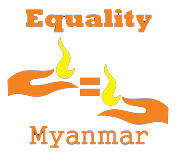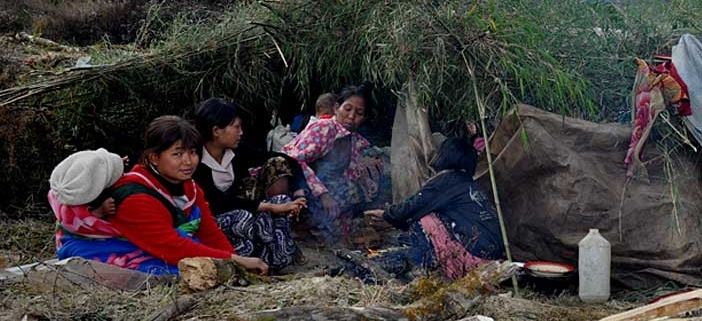MONDAY, 13 FEBRUARY 2012
A spokesman for China’s Ministry of Foreign Affairs has refuted media reports of a mass exodus of Kachin refugees from Burma to China.
Speaking at a press conference on Friday, spokesman Liu Weimin said, “After verification, we can attest that these reports do not confirm the truth.”
He acknowledged that an undisclosed number of Burmese citizens have sought refuge in China after recent fighting between Burmese government forces and an ethnic Kachin militia.
“These people are not refugees,” Liu said, adding that those in question immediately returned to Burma when the situation there had normalized.
“The number of people is far less than that reported from external sources,” he added.
In recent weeks, reports by major foreign and Chinese media have highlighted the plight of displaced Kachin villagers seeking shelter across the border in China’s Yunnan Province.
Various news organizations reported the number of refugees crossing the porous border at between 10,000 and 40,000.
But according to estimates by the Kachin News Group, as many as 70,000 people displaced by fighting in Kachin State and northern Shan State are living in refugee camps “along the China border in territory controlled by the Kachin Independence Organization [KIO].”
Speaking to The Irrawaddy, Their Hkaw Lwi, a spokesperson for the Wunpawng Ninghtoi Relief Group, which set up in June 2009 after fighting led to a massive refugee crisis along the border, said that the number of displaced people has increased over the last month.
In January, the group estimated 40,000 Kachin people displaced within Burma’s borders. They recorded 9,061 refugees in China in two camps—Nongdao and Laying—both in the Dehong Prefecture in Yunnan Province.
Their Hkaw Lwi said the number of internally displaced had increased to 50,000, while there were now 11,465 refugees in the two camps in China.
“They have received no help from the Chinese government,” Hkaw Lwi said. “The Chinese would like all refugees to go back. But the refugees have no choice and are still there.”
Fighting between Burmese troops and the KIO’s military wing, the Kachin Independence Army (KIA), has endured off and on for half a century, but the conflict intensified when a 1994 ceasefire collapsed last year.
In January, China hosted peace talks between the KIO and Burmese government representatives in the border town of Ruili.
A month earlier, Burmese President Thein Sein ordered his army to halt military operations against the Kachin rebels, except when reacting in self-defense.
He renewed his pledge to bring an end to the country’s various ethnic conflicts in his address for Union Day, which was carried by state media on Sunday.
“We have to discuss this issue with the Burmese government,” said Professor Kong Qingdong from Peking University, a leading voice among Chinese nationalists in an interview with the online news portal V1 News. “If they can’t solve it, we can help solve it.”
China should first act as a responsible power and solve the humanitarian crisis, and then make sure that the “flood of refugees” ends, said Kong.
“Our problem is that our position is not clear,” he said. “Do we support the Burmese government or the opposition forces? If this is not clear to me in Beijing, how can it be clear there?”
Kong, a descendant of philosopher Confucius, has gained prominence as a provocative anti-liberal commentator.
Zhu Zhenming, an expert on Southeast Asian Studies at the Yunnan Provincial Academy of Social Sciences, argued that the Chinese government should put pressure on Naypyidaw.
“They should deal effectively with this problem, so that Burma’s internal affairs don’t affect the stability of our border areas,” he told Shenzhen Television on Friday.
Because the KIA has played a leading role among the ethnic minority forces, “the Burmese government has continued its military siege on them and implemented repressing policies,” Zhu said.
An end to ethnic conflicts—one of which is the ongoing war with the Kachin—has been one of the primary conditions for the lifting of the US, European and Australian sanctions against Burma as it is undergoes democratic reform.


 Equality Myanmar (EQMM) is a leading nongovernmental organization that organises a wide range of human rights education and advocacy programs, the documentation human rights violations, and provides emergency support for activists, human rights defenders, and their families. We work with a range of local civil society organizations, educators, activists, various local actors, and our programs and activities reach all states and regions in Myanmar.
Equality Myanmar (EQMM) is a leading nongovernmental organization that organises a wide range of human rights education and advocacy programs, the documentation human rights violations, and provides emergency support for activists, human rights defenders, and their families. We work with a range of local civil society organizations, educators, activists, various local actors, and our programs and activities reach all states and regions in Myanmar.
